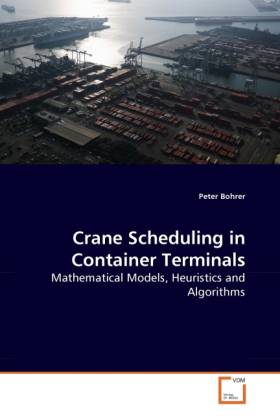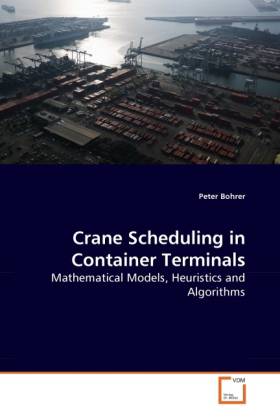
- Afhalen na 1 uur in een winkel met voorraad
- Gratis thuislevering in België vanaf € 30
- Ruim aanbod met 7 miljoen producten
- Afhalen na 1 uur in een winkel met voorraad
- Gratis thuislevering in België vanaf € 30
- Ruim aanbod met 7 miljoen producten
Zoeken
Omschrijving
The globalization of trade has lead to an enormous growth in sea transportation over the last years. A great majority of general cargo is containerized and handled in container terminals, which are essential hubs in sea transportation systems. The potential of cost saving in a container terminal is large and the workflow of a container terminal has to be very efficient. The focus of this book lies on the scheduling of cranes in container terminals in order to improve the turnaround time of a port. Crane scheduling has a strong impact on the performance of the container terminal system. In this book, models to schedule different crane types are developed with respect to their characteristic abilities. The sugges-ted procedures and algorithms lead to crane schedules which make the container workflow more efficient and improve the performance of ports in a global and highly competitive economy. The book is addressed to logistic planners, people dealing with sche-duling problems and mathematicians interested in integer programs.
Specificaties
Betrokkenen
- Auteur(s):
- Uitgeverij:
Inhoud
- Aantal bladzijden:
- 68
- Taal:
- Engels
Eigenschappen
- Productcode (EAN):
- 9783639042368
- Verschijningsdatum:
- 17/06/2008
- Uitvoering:
- Paperback
- Formaat:
- Trade paperback (VS)
- Afmetingen:
- 152 mm x 229 mm
- Gewicht:
- 104 g

Alleen bij Standaard Boekhandel
+ 96 punten op je klantenkaart van Standaard Boekhandel
Beoordelingen
We publiceren alleen reviews die voldoen aan de voorwaarden voor reviews. Bekijk onze voorwaarden voor reviews.











